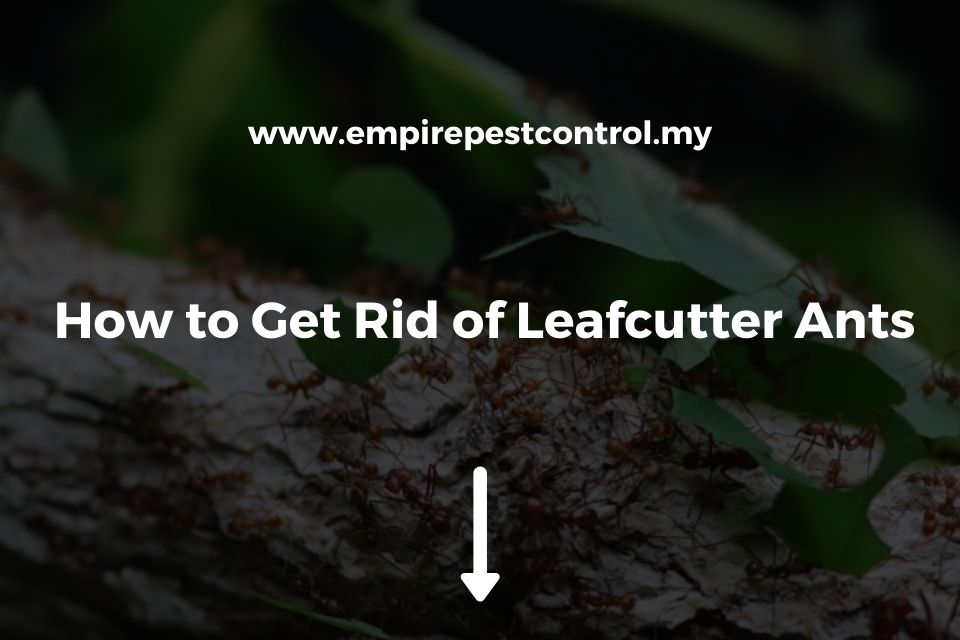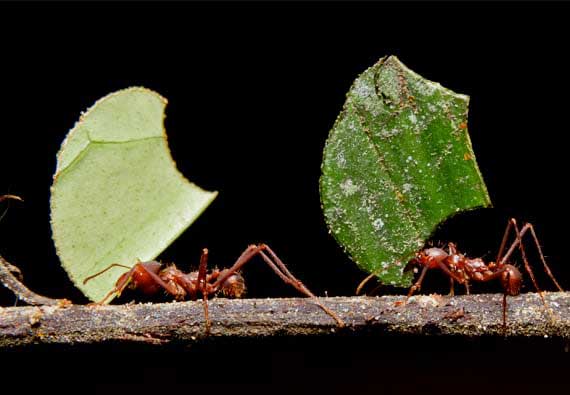The leafcutter ant represents a distinctive category of ant that requires a different approach compared to regular pests. These ants are capable of causing harm and annoyance, yet eliminating them is straightforward! Let’s dive into the methods by which you can effectively deal with these nuisances immediately.
PS: Are you looking for a professional ant control service? If so, then contact us today! Our team is proven reliable and efficient in dealing with these pesky pests.
Contents
What Are Leafcutter Ants?
Leafcutter ants are a unique type of ant that has the ability to cause damage because they tend to invade homes looking for food.
These insects can grow up to be three millimeters long, and each one has an orange-brown body with black legs.
When it comes to identifying these pests, you’ll find them underneath leaves or in your home during the warmer months when they’re trying to keep cool.
During this time is when homeowners often see leafcutter ants leaving holes behind as well as frass (sawdust) near their nests outside.
If you spot any signs of feeding on plants, you know there’s likely more than just one colony which means trouble! This!
Are Leafcutter Ants Bad?
Leafcutter ants are more than just a nuisance. These insects can do damage to your home and yard if they’re not taken care of immediately!
If you spot any signs of feeding on plants, it’s likely there’s more than one colony which means trouble.
These pests will leave their nests in search of food, but when they find something good at your house instead, that is where the problem starts.
The leafcutter ant colonies have been known to grow up to thirty meters wide, making them a lot harder to control without professional help from pest management companies like us.
What Home Remedy Kills Leaf Cutter Ants?
There are some home remedies that will help you get rid of these ants if done correctly. However, it’s important to keep in mind there is always the chance they could return to speak with us about our treatment options!
One of the most effective ways for homeowners to take care of leafcutter ants at their house is by mixing borax and sugar together then sprinkling this on your lawn or garden.
This may not sound like a great idea because borax does pose risks, but when mixed with honey (which isn’t toxic), it becomes much safer for use around pets and kids trying to do yard work outside.
How to Control and Get Rid of Them
These ants are more than just a nuisance, so it’s important to take care of them right away. If not taken care of in the correct manner, they can pose risks for your family, including skin irritations and allergies when coming into contact with these insects.
Here are ways on how to control and get rid of leafcutter ants:
Drenching
Drenching the nest in a pesticide is one of the most effective ways to get rid of them.
One way for homeowners to do this themselves is by pouring boiling water into their nests, but there’s always risks involved with doing something like that yourself!
It may be best to contact experts at pest control companies who have all the necessary tools and knowledge needed when trying anything outside your comfort zone or experience level.
Spraying Insecticide
Another way to get rid of leafcutter ants is by spraying insecticide on plants around your house.
However, you’ll want to make sure the plant isn’t toxic before doing so because if it is, then they could return or damage other parts of your lawn!
Also, be careful when using this method without professional help because some pesticides are harmful to pets and children who might come in contact with them while playing outside.
Calling a Professional
The safest way to get rid of leafcutter ants is by calling a professional ant exterminator who knows how to treat these pests properly.
A pest management company can offer you more information on what they do and the tools needed for each treatment option which could be helpful depending on your situation.
Takeaway
Leafcutter ants are a very common infestation that can be difficult to get rid of. You need to understand what the life cycle is and how they go about colonizing your home, as well as identify their food source in order to take appropriate action against them.
This blog post has gathered all the information you need on leafcutter ants so you can keep these pests out for good.
If you have more questions in mind, call us today.


